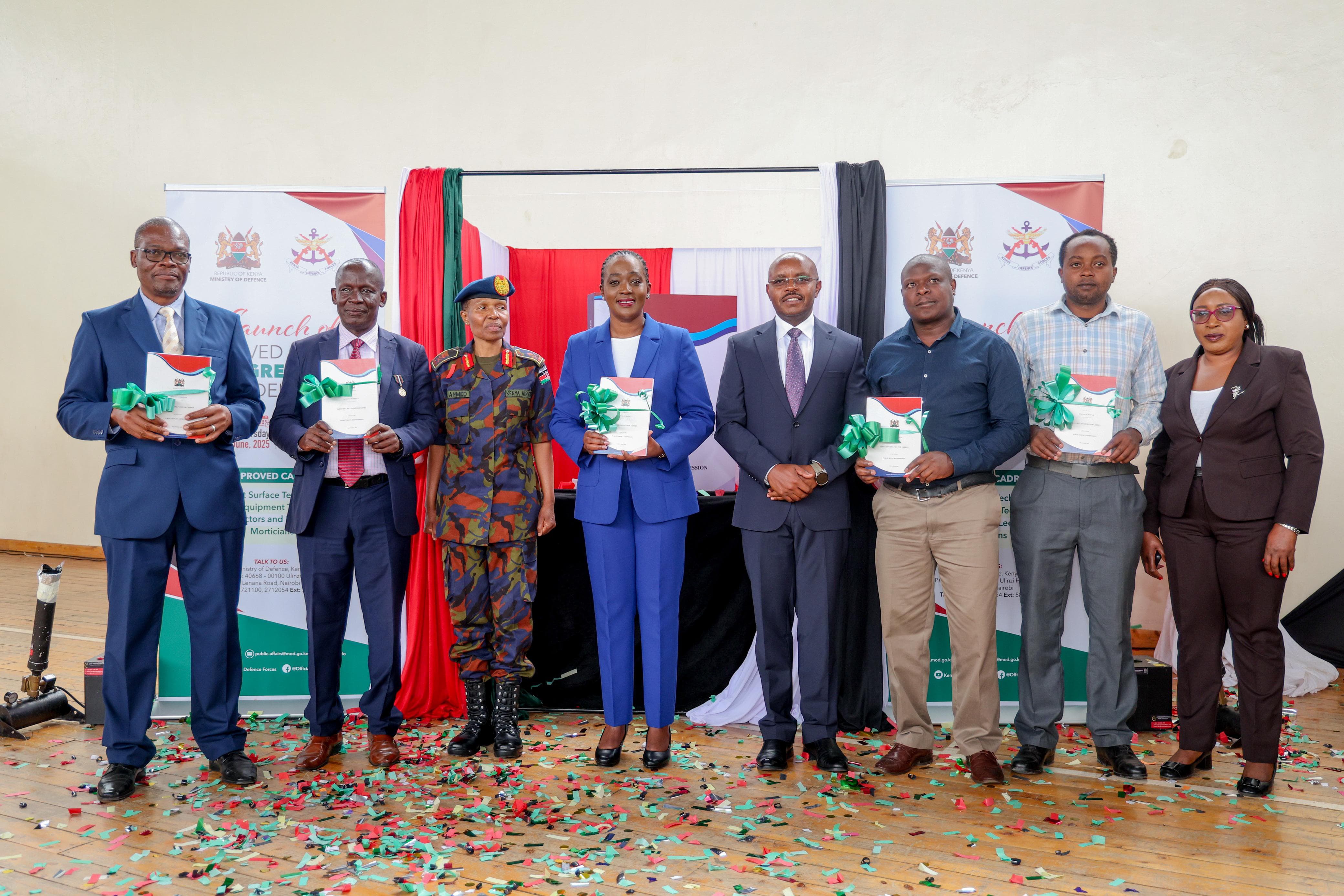 Defence Cabinet Secretary Soipan Tuya during the unveiling of the first-ever career progression guidelines for civilian staff at a vibrant ceremony held at Moi Air Base, Nairobi, June 12, 2025. /MOD
Defence Cabinet Secretary Soipan Tuya during the unveiling of the first-ever career progression guidelines for civilian staff at a vibrant ceremony held at Moi Air Base, Nairobi, June 12, 2025. /MODIn a historic move aimed at empowering its non-uniformed workforce, Kenya’s Ministry of Defence has unveiled its first-ever career progression guidelines for civilian staff.
The announcement was made on Thursday by Cabinet Secretary Soipan Tuya at a vibrant ceremony held at Moi Air Base, Nairobi.
The new guidelines cover five specialised cadres: lecturers, instructors, safety equipment technicians and technologists, aircraft service technicians and technologists, and morticians and assistant morticians.
The ministry hailed the development as a significant step towards improving human capital management.
"This marks a major milestone in our efforts to enhance human capital management at the Ministry," the ministry said in a statement.
For years, civilian staff have played critical roles in supporting the ministry’s mandate, often without clear pathways for advancement.
Many served with resilience and dedication, despite the professional stagnation caused by a lack of structured career progression.
“As the ministry’s mandate and scope expand in line with Kenya’s evolving development and national security priorities, it recognises the long overdue need to ensure that non-uniformed staff have clear career progression pathways,” the ministry stated.
The newly unveiled guidelines aim to ensure that civilian personnel enjoy rewarding and professionally fulfilling careers, acknowledging their integral role in national defence.
Looking ahead, the ministry is also developing a comprehensive Defence Civilian Staff Policy.
This policy will serve to further harness the potential of civilian staff and solidify their contribution to the ministry’s constitutional role of safeguarding Kenya’s sovereignty and territorial integrity.
The Cabinet Secretary was joined at the event by Defence Principal Secretary Dr Patrick Mariru, Kenya Air Force Commander Maj Gen Fatuma Ahmed, Public Service Commission Deputy CEO John Muriungi, and Secretary for Administration Isaac Masinde, along with other senior military and government officials.














